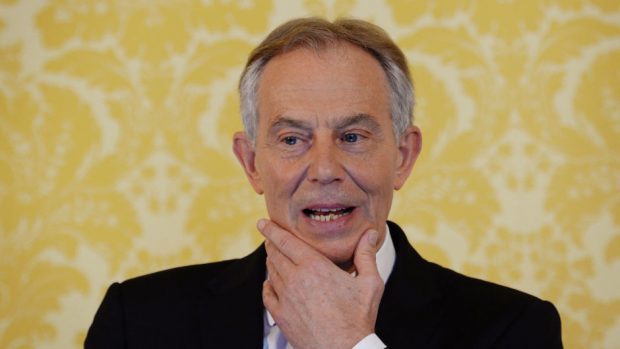MPs will seek to increase support for a motion to find Tony Blair in contempt of parliament during a Commons debate on the Chilcot Report tomorrow.
Senior Tory David Davis intends to submit it to the speaker on Thursday and hopes it will be discussed next week.
It will claim the former prime minister deceived the House over the 2003 Iraq invasion.
Mr Davis said at the weekend the motion already had “quite a lot” of cross-party backing, but the two-day debate on the Iraq Inquiry Report will be a chance for him and others in favour to persuade MPs to support it.
Gordon MP Alex Salmond, who is among them, has said a “verdict” on Blair is needed.
Labour leader Jeremy Corbyn has also indicated he will back the motion, saying he “probably would” support the effort to find a parliamentary way to hold Mr Blair to account.
Mr Davis’s efforts came as the SNP said the report had revealed how the ex-prime minister misled his Cabinet by playing down the risk of deploying Black Watch soldiers to North Babil, having been warned the reception would be “much more hostile” there.
Sir John Chilcot’s findings also showed Mr Blair made a promise to US president George Bush to “help” in the area days before an official decision was made.
SNP MSP Graeme Day described the revelations as “shocking”.
He added: “They are yet more evidence of the lengths Tony Blair went to – and the depth of his deception – in offering unqualified support to George W Bush’s military adventurism.
“In doing so he ignored vital intelligence advice, putting soldiers in harm’s way.
“No amount of weaseling and spin can save Tony Blair from the stark and tragic reality that his deceit cost soldiers their lives and he must now be held to account.”
Far from a whitewash, the report concluded the British invasion was based on “flawed” intelligence with inadequate preparation at a time when Saddam Hussein did not pose an “imminent threat”.
But Labour MP Dame Margaret Beckett, who was in the Cabinet at the time of the war vote, has stressed it makes clear Mr Blair “did not lie, did not falsify evidence and that the Cabinet was not misled on the presentation of the legal advice”.
